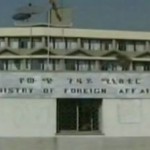 Members of the Ethiopian Diaspora can register either individually or through becoming part of an association.
Members of the Ethiopian Diaspora can register either individually or through becoming part of an association.
A directive on the housing registration for members of the Ethiopian Diaspora community prepared by the Ministry of Urban Development, Housing & Construction (MUDHC), provides for a housing scheme that will only be open to the Diaspora.
The directive, which is expected to be ratified by the minister of the MUDHC, Makuria Haile, in the coming few weeks, lists a different set of prices, as well as access to ownership from the previous 40/60 and 20/80 schemes, which are currently underway.
Members of the Diaspora and workers of the Ethiopian diplomatic missions are allowed to register for the houses either individually or by getting organised under housing cooperative associations.
They can choose to own a house at a place of their choice, from Addis Abeba, Dire Dawa and other regional towns, according to the new directive.
Among the alternatives provided in the directive, there is no single bedroom house, only two to four bedroom houses. This makes the new scheme different from the existing ones. A two bedroom house that rests on 74sqm, in an apartment with a minimum of four storeys will cost the registrant a little more than half a billion Birr, while the one with three bedrooms that occupies an area of 100sqm costs 720,000 Br. Beneficiaries of four bedroom houses that takes 136sqm are required to pay close to a million Birr.
There is a slight variation in the costs if the location of the building is in the regional towns. The area the houses occupy being similar, if the houses are situated in the major regional towns, the value of the houses will be 424,390 Br, 573,500 Br and 779,960 Br for two, three and four bedrooms, respectively.
If a Diaspora wants to own a town house – defined as a G+1 or G+2, which will be built independently with a small compound and a separate gate – there exists an option for such kind of houses in the regional town, according to the final draft of the directive Fortune has obtained from a source. Nonetheless, the option is limited to town houses with three bedrooms and four bedrooms, which rest on 114sqm and 150sqm area, respectively. Such houses with three bedrooms will cost the beneficiary 693,120 Br, while the four bedroom houses are estimated to be worth 912,000 Br.
The price for all types of houses is estimated based on the current price of construction materials and will be subject to adjustment in case of a reasonable change in prices that are not within the grasp of the current estimation, says the directive.
The apartments in Addis Abeba with a height of G+4 and above will be built by a housing association comprising of twelve members. An association of twelve individuals will have three options of building based on the number of different types of houses the building includes.
An apartment that occupies a total area of 1056sqm with three houses of two bedrooms, six houses of three bedrooms and three houses of four bedrooms are the first options available. The second option proposed by the directive is an apartment that rests on a total area of 1104sqm, while incorporating twelve houses – one for each member of the association. This option includes six houses with three bedrooms and the same number of houses with four bedrooms.
An apartment with a similar number of houses resting on 1088sqm, comprising of eight with three bedrooms and the remaining four with four bedrooms is the third option put forward by the authors of the directive.
If members of the association wants to register for a G+1 townhouses in the major regional towns, which are not specified in the directive, there are three alternatives. With the number of members of the association being 12, two bedroom houses that rest on 120sqm, including the compound is presented as the first option, while three bedroom houses each dedicated with a total area of 135sqm is the second option, with 150sqm area for each of four bedroom houses set to be the fourth option.
The registration and payment mechanism for these houses is entirely different from those already underway. A Diaspora member has to pay half the value of the house for which she/he wishes to register to be considered as organised in an association. While the housing cooperative association, which has to include a total of twelve members to be considered, has to collect half of the payment from all of its members.
The remaining half of the cost shall be paid when the land for the construction of the houses is prepared and handed over to the association and construction permit will only be secured after full payment.
Payment shall be made in foreign currencies with which the country transact for the diaspora communities while members of the Ethiopian diplomatic mission can make payments through local currency, Birr.
This new scheme designed for the member of the Ethiopian Diaspora community and Ethiopian diplomat and workers of Ethiopian missionaries in an addition to the two schemes of housing for others in the country.
Currently, the government is undertaking the construction of 13,881 houses at nine sites across the city for the residents registered under the 40/60 housing scheme, according to the nine months performance report of Saving Houses Development Enterprise of the city administration.
Source:Fortune




























Join Conversations